Viewpoint: Across China by wheelchair
- Published
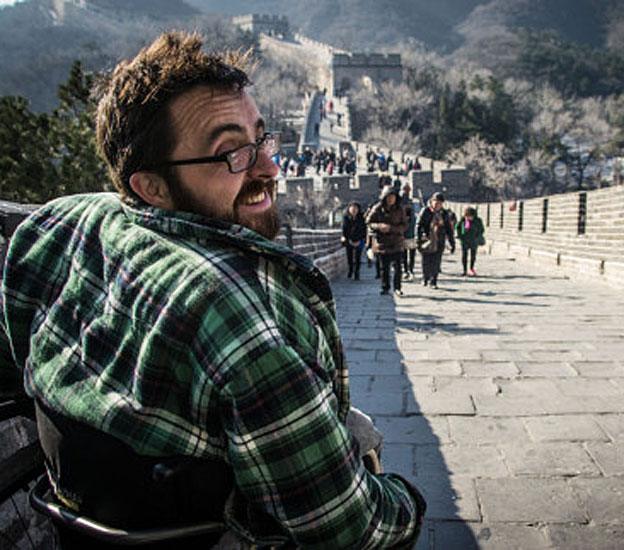
James Ballardie is a wheelchair user who has been travelling the world without planning an accessible path through it. And it was all going pretty well until he reached China.
My girlfriend and I have been travelling across the world for 11 months. We've been through Brazil, Argentina, Chile, Bolivia, Peru, Ecuador, Colombia, the USA, Japan and South Korea, and so far it's been remarkably straightforward.
We don't research wheelchair access facilities before arriving in the next place on the list, we just enjoy the ride.
Whenever we hit a flight of stairs, I jump out of the wheelchair, scramble up on my hands and knees, and get back in. My girlfriend, meanwhile, is left to carry the chair behind me. It might sound like a lot of hassle, but to us it's completely normal - a minor inconvenience.
I've navigated England in a wheelchair for 32 years and had figured that I'm well prepared for backpacking anywhere. Well, that's what I used to think until I arrived in China.
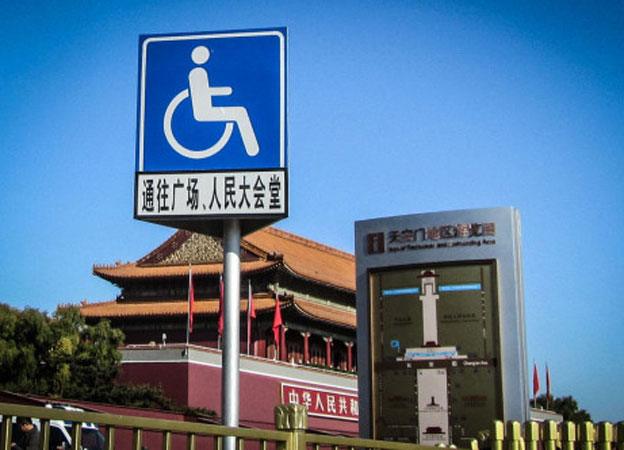
The good news - discovered whilst looking out of the window on the overnight train to Beijing - is that the vast majority of Chinese cities are flat as a pancake. When carrying a year's worth of backpacking supplies, I like to make a habit of avoiding steep hills wherever possible.
As soon as we stepped off the train, however, the good news stopped flowing. Carrying out even the most basic of tasks in a wheelchair in cities like Beijing, Shanghai, Xian and Shenzhen felt like I was competing in The Hunger Games.
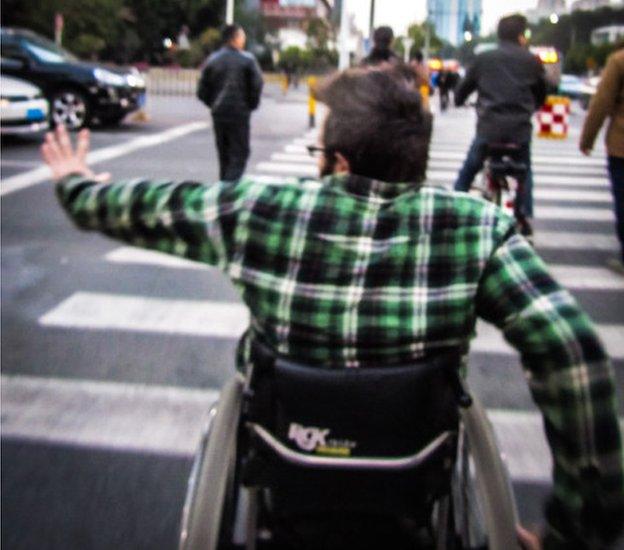
Take crossing the road, for example. Even on back streets it could mean life or death.
These cities have the most aggressive driving culture I've ever seen. Drivers don't use hand gestures or try to gain eye contact - they deliberately turn away. Traffic lights are basically meaningless. No one seems to use indicators either.
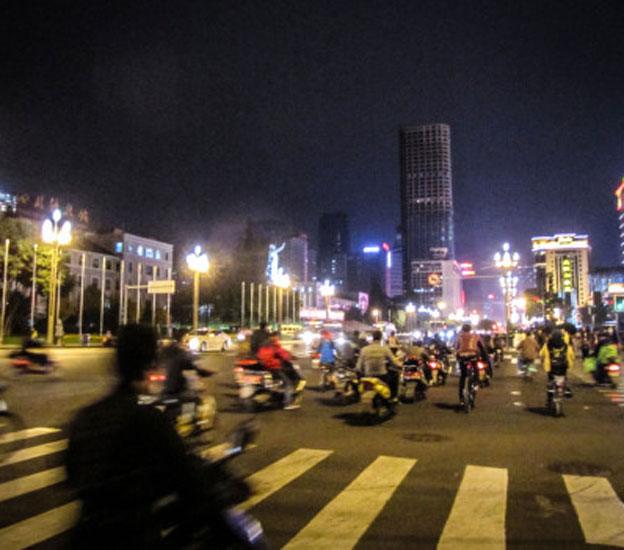
Most pedestrians cross roads in swarms, presumably on the basis that it's safer in numbers. It's difficult to see where wheelchairs can successfully fit into the scrum - I had to learn to watch out for elbows in the face and getting pushed into oncoming vehicles. If the elbow strayed too close to my wheels, though, they would have to look out for crushed toes and snapped ankles.
This aggressively Darwinist approach to road crossing seemed to be ingrained in all the places I visited. At train stations, ticket collectors sprint fastest to get first place in queues at the lifts. In markets, the richest strike the hardest bargains. On roads, it's the biggest cars that drive most dangerously.
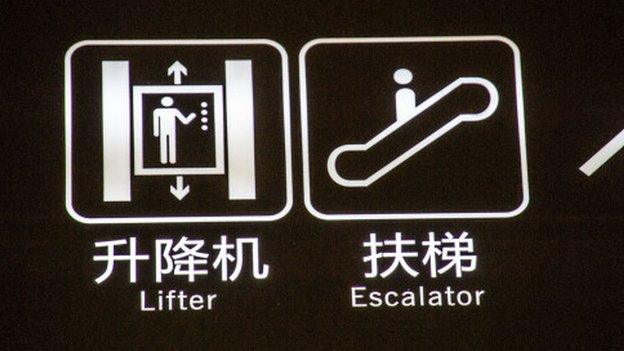
So why not wait and cross the road at a quieter section with less risk of collision? There's a good reason. Most main roads in Chinese cities are lined with big iron fences that are impossible to climb over so pedestrians have no choice but to use the footbridges and subways which mostly have stairs. Those that have lifts tend either to be broken or only operable with a key which I was unable to find anywhere.
Crossing the road at a quieter section often resulted in a 45-minute detour so I found the best way to get from A to B was to just man up and face the hazards like everybody else.
When complaining about accessibility, most British disabled people bemoan a lack of facilities that are likely to be expensive to provide. I don't complain, especially in developing countries, because it's quite a tall order to expect businesses to fork out for equipment for which they are unlikely ever to see a financial return.
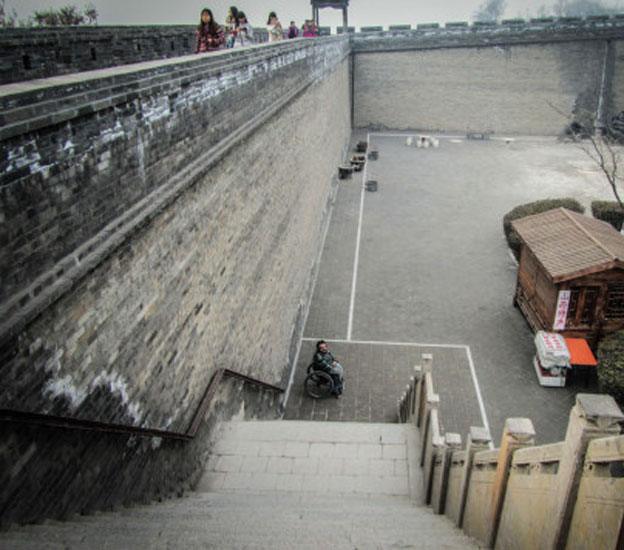
But even a pragmatist like me is left feeling like they want to punch a shih tzu after coming across "men kan" - the wooden beams spanning the bottom of doorways in about a third of Chinese buildings.
Legend has it that they keep out evil spirits but to get through a doorway I have to get out of the wheelchair, step over the men kan, lift the wheelchair over and then get back in. On an average day of sightseeing I had to do this three or four dozen times.
Men kan are not a lack of facilities - they are an obstacle created by people. It would cost less to not build men kan, with the only drawback being an excess of evil spirits in the house. To me, men kan summed up the Chinese attitude to accessibility I experienced - not a priority.
With that in mind, you'd be forgiven for thinking the attitude towards me throughout my stay in China was hostile. Far from it. There is an innocence to Chinese wheelchair curiosity, totally inoffensive but utterly exhausting.
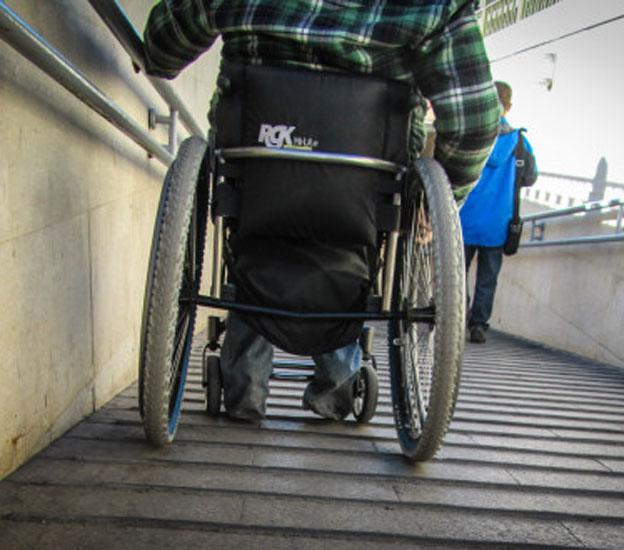
I noticed it was entirely normal for people to take photos whenever they see a wheelchair. In particular, they like to take the shot when you're straining to conquer a hill or climb a flight of stairs. To be fair, most people seem more interested in the wheelchair than me specifically. You can trace their eyeline to the exact point where the rear wheels meet the ground.
One guy in Shanghai thought I'd have no problem whatsoever with him pinching my knee between his thumb and index finger. His enthusiasm was endearing as much as it was bamboozling - but it left me feeling more like a C-list celebrity than an exhibit in a freak show. It's like being in a strange parallel universe where everyone around you has lost their inhibitions.
There were some startling exceptions to the rule - like the abundance of ramps in Chengdu, the helpful policeman on the train to Xian, the couple in Shenzhen station who lent us correct change for a vending machine, and Yingchen, the biology student in Hangzhou station who helped us find a guard with a key for the lift.
It's not so much that acts of kindness are a rarity, just that it's impossible to predict where the next behavioural anomaly is coming from. That's what makes China so fascinating, as well as gruelling.
Follow James Ballardie's adventure across the world on his blog, external.
Follow @BBCOuch, external on Twitter and on Facebook, external, and listen to our monthly talk show